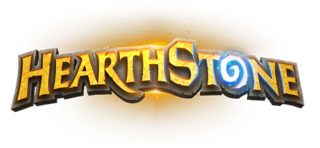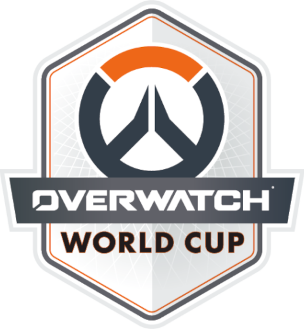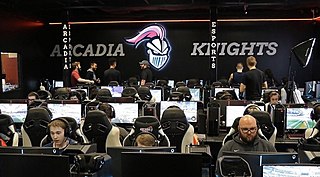
Esports, short for electronic sports, is a form of competition using video games. Esports often takes the form of organized, multiplayer video game competitions, particularly between professional players, played individually or as teams.

BlizzCon is an annual gaming convention held by Blizzard Entertainment to promote its major franchises including Warcraft, StarCraft, Diablo, Hearthstone, Heroes of the Storm, and Overwatch.

Major League Gaming Corp. (MLG) is a professional esports organization. MLG is headquartered in New York City, New York and was founded in 2002 by Sundance DiGiovanni and Mike Sepso. MLG has held official video game tournaments throughout the United States and Canada. The Boost Mobile MLG Pro Circuit was a television broadcast of Halo 2 MLG tournaments in 2006 and 2007, ESPN.com, and other broadband sites. The company has also been involved in television production, and game development. MLG's aim is to elevate computer and console game tournaments to viable competitive and spectator events.
Michele Morrow is an American television presenter, host, actress, writer, producer and video game personality. She is the co-creator, executive producer and lead actor of the single camera sitcom, Good Game, a YouTube Original with Dan Harmon's Starburns Industries and Game Grumps, and is the voice over artist for Alleria Windrunner in Hearthstone.

The Korea e-Sports Association (KeSPA) is a South Korean body established to manage esports in South Korea. It is a member of the Korean Olympic Committee and the International e-Sports Federation. As of June 2012, it was the managing body for 25 e-sports in the country, including Starcraft II: Legacy of the Void, League of Legends, Dota 2, and Counter-Strike: Global Offensive. KeSPA also hosts the KeSPA Cup, a yearly tournament event for some of their games.
Multiplayer online battle arena (MOBA) is a subgenre of strategy video games in which two teams of players compete against each other on a predefined battlefield. Each player controls a single character with a set of distinctive abilities that improve over the course of a game and which contribute to the team's overall strategy. The typical objective is for each team to destroy their opponents' main structure, located at the opposite corner of the battlefield. In some MOBA games, the objective can be defeating every player on the enemy team. Players are assisted by computer-controlled units that periodically spawn in groups and march forward along set paths toward their enemy's base, which is heavily guarded by defensive structures. This type of multiplayer online video games originated as a subgenre of real-time strategy, though MOBA players usually do not construct buildings or units. Moreover, there are examples of MOBA games that are not considered real-time strategy games, such as Smite (2014), and Paragon. The genre is seen as a fusion of real-time strategy, role-playing and action games.

Heroes of the Storm is a crossover multiplayer online battle arena video game developed and published by Blizzard Entertainment. Announced at BlizzCon 2010, it was released on June 2, 2015 for macOS and Windows. The game features various characters from Blizzard's franchises as playable heroes, as well as different battlegrounds based on Warcraft, Diablo, StarCraft, and Overwatch universes.

Hearthstone is a free-to-play online digital collectible card game developed and published by Blizzard Entertainment. Originally subtitled Heroes of Warcraft, Hearthstone builds upon the existing lore of the Warcraft series by using the same elements, characters, and relics. It was first released for Windows and macOS in March 2014, with ports for iOS and Android released later that year. The game features cross-platform play, allowing players on any supported device to compete with one another, restricted only by geographical region account limits.

Cloud9 Esports, Inc., or simply Cloud9 (C9), is an American professional esports company based in Santa Monica, California. The company was originally founded as a professional League of Legends team by Jack and Paullie Etienne in May 2013 and was incorporated into Cloud9 Esports, Inc. on September 6, 2016. Cloud9 has received US$78 million in total raised equity via venture capital funding and was ranked the world's fifth-most valuable esports organization in mid-2022.

Immortals is a professional esports organization based in the United States owned by Immortals Gaming Club. It was founded on October 7, 2015, after the acquisition of Team 8's LCS spot.

Tempo Storm is an American esports professional video game team that has teams competing in Age of Empires II, FIFA, Magic: The Gathering, fighting games, and Shadowverse. They have formerly held divisions in Hearthstone, Heroes of the Storm, Fortnite, League of Legends,Counter-Strike: Global Offensive, Overwatch, Vainglory, Tom Clancy's Rainbow Six Siege,World of Warcraft, and PlayerUnknown's Battlegrounds.

PVP Live was an American esports news website. It was founded in 2012 and included a statistics database. The website was owned by PVP Live Interactive, Inc. PVP Live came out of its most recent beta on June 8, 2015. The company is based in Frisco, Texas.

Blizzard Entertainment's online collectible card game Hearthstone became played professionally quickly after its release in March 2014. The game is played as an esport, with high-level tournaments such as Blizzard's official World Championship featuring prize pool of up to $1 million, and livestreamers can earn money streaming gameplay on Twitch.

The Overwatch League (OWL) was a professional esports league for the video game Overwatch, produced by its developer, Blizzard Entertainment. From 2018 to 2023, the Overwatch League followed the model of other traditional North American professional sporting leagues by using a set of permanent, city-based teams backed by separate ownership groups. The league used the regular season and playoffs format rather than promotion and relegation used commonly in other esports and non-North American leagues, with players on the roster being assured a minimum annual salary, benefits, and a portion of winnings and revenue-sharing based on team performance.

The Nexon Arena was a dedicated eSports stadium in Seoul, South Korea that hosted events for StarCraft II, League of Legends, and other games. It was founded in December 2013, and closed on July 31, 2020.

The Overwatch World Cup (OWWC) is an annual international Overwatch esports tournament organized by Blizzard Entertainment, the game's developer, with the first edition taking place in 2016. The tournament ran every year until 2019; after a three-year hiatus, the OWWC returned in 2023.

College esports in the United States began around 2009. Various schools began forming esports clubs to play any number of video games in collegiate tournaments. While there are thousands of schools that participate in collegiate esports competitions, in 2018, there were at least 73 college varsity esports programs, and by 2019 over 130 college varsity programs. College esports is often viewed as a starting path for gamers that aspire to go professional. Although popular, companies are finding it hard to monetize collegiate esports, especially with the recent COVID-19 situation. On December 9, 2020, North American collegiate partner of Activision-Blizzard's esports system, Tespa announced that it is closing down.

Erik Lonnquist, better known by DoA, is an American esports commentator. He began his career casting StarCraft II for companies such as GomTV in South Korea and IGN in California. He worked for OnGameNet from 2013 to 2017, casting League of Legends Champions in South Korea, where he worked with his casting partner Christopher "MonteCristo" Mykles. He was signed by Blizzard Entertainment to cast the Overwatch League from 2018 to 2019 and again in 2021. In 2022, he began hosting the Rainbow Six: Siege North American League.

Overwatch is a multimedia franchise centered on a series of multiplayer first-person shooter (FPS) video games developed by Blizzard Entertainment. Overwatch was released in 2016 with a successor, Overwatch 2, released in 2022. Both games feature hero-based combat between two teams of players vying over various objectives, along with other traditional gameplay modes.

















